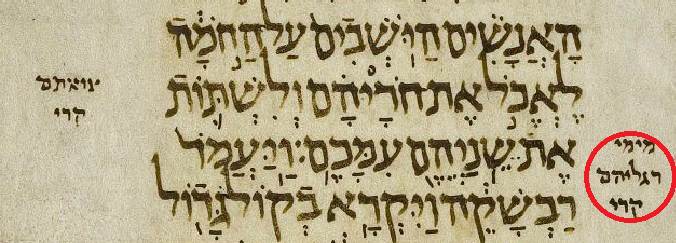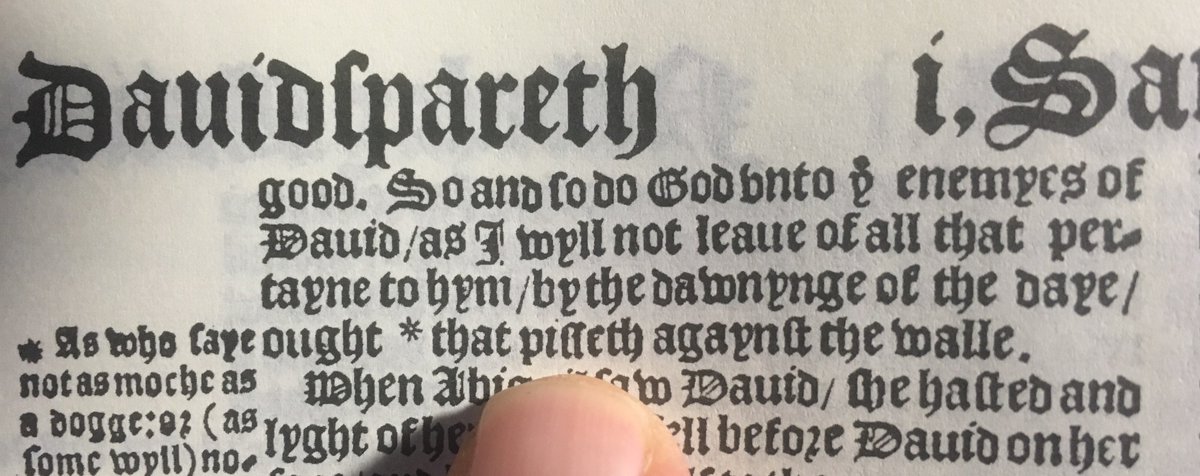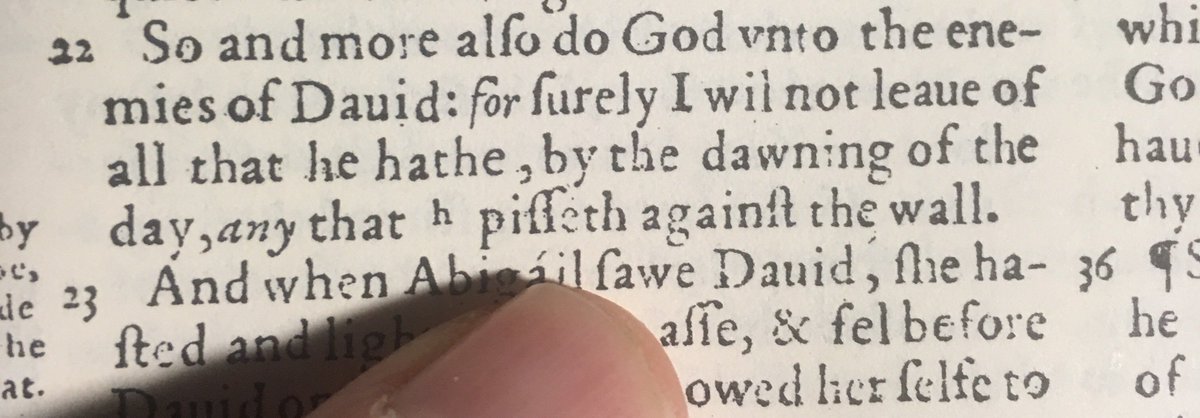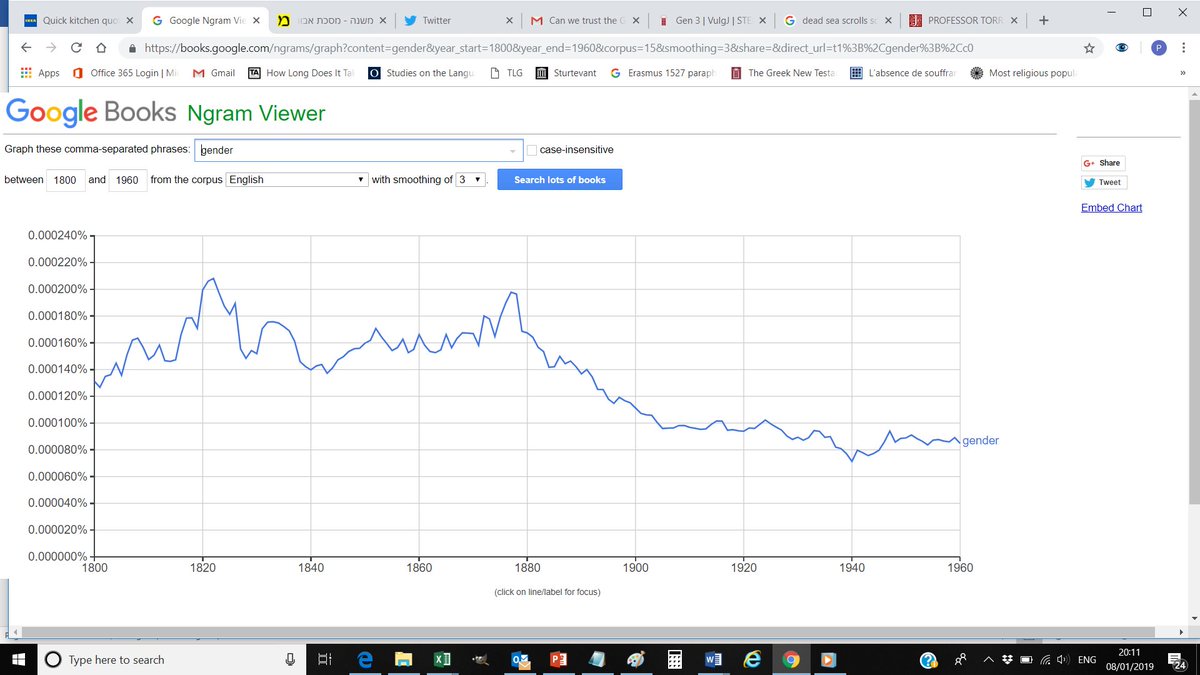In the King James Version, David says:
“So and more also do God unto the enemies of David, if I leave of all that pertain to him by the morning light any that pisseth against the wall.” (1 Samuel 25:22)
All 6 occasions occur in formulae speaking about exterminating for a particular person (Nabal 2x; Jeroboam; Baasha; Ahab) all who urinate against the wall.
Here’s 1 Kings 16:11:
he left him not one that pisseth against a wall (KJV)
he left him not a single man-child (ASV)
he left not a single mother’s son alive (REB)
he did not leave him a single male (ESV)
he did not spare a single male (NIV)
he did not leave a single male (CSB)
Literal renderings were given by the ancient translations: Greek (4/6 occasions), Latin, and Syriac. Targum Jonathan paraphrases (‘a knower of knowledge’).

This has several disadvantages:
1) A vivid & memorable expression is replaced by blander ones, reducing interest for readers.
“So and more also do God unto the enemies of David, if I leave of all that pertain to him by the morning light any that pisseth against the wall.” (1 Sam 25:22 KJV)
He didn’t carry it through because of wise Abigail's intervention.
“God do so to me and more also; you shall surely die, Jonathan.” (1 Sam 14:44 ESV)
However, whereas David invoked bad on *his enemies* if he broke the vow, Saul was stupid enough to invoke bad on *himself* if he broke it.
Translators need confidence to present the text in as straightforward a way as possible.
Readers need access to such colourful expressions in translation.
There are 4 genealogical lines to which this phrase applies: Nabal, Baasha, Jeroboam, and Ahab.
3 of these are kings & Nabal lived like a king (1 Sam 25:36).
All have lines which go nowhere.
The wiping out of these lines provides a foil to the thematic survival of the Davidic royal seed amid existential threats.
Thank him also for modern WCs.
END
RT if appreciated











